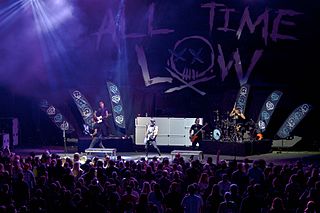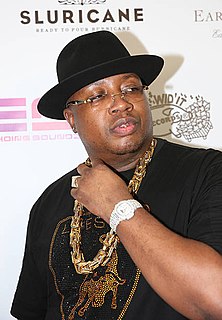A Quote by Edward Snowden
I would say the first key concept is that, in terms of technological and communication progress in human history, the Internet is basically the equivalent of electronic telepathy. We can now communicate all the time through our little magic smartphones with people who are anywhere, all the time, constantly learning what they're thinking, talking about, exchanging messages. And this is a new capability even within the context of the Internet.
Quote Topics
About
Anywhere
Basically
Capability
Communicate
Communication
Concept
Constantly
Constantly Learning
Context
Electronic
Equivalent
Even
Exchanging
First
History
Human
Human History
Internet
Key
Learning
Little
Magic
Messages
New
Now
Our
People
Progress
Say
Smartphones
Talking
Technological
Telepathy
Terms
Thinking
Through
Time
Within
Would
Related Quotes
I consider us to be one of the first Internet-based bands, especially because we basically started our entire band via the Internet. Before MySpace Music even existed, we had a band MySpace page. We were one of the first fifty bands on PureVolume(.com), and we really built everything from the Internet. That's how we started talking to record labels, that's how we booked our first tours. Without the Internet social networking, like Twitter, we definitely wouldn't be where we are today. It is a huge part of the band.
Communication requires cultural context, and technology facilitates our ability to cross-reference ideas over time. Charles Moore were saying: Enough with the sterile, context-less architecture. Enough with the functional-minded frame of operation. How about a little mess? How about a little, let's say, syntax? A little quotation using history? How about some other meanings or symbols? I think that's the only logical reaction when you have to thoughtfully manage the communication of a lot of information.
When I was your age, we didn't have the Internet in our pants. We didn't even have the Internet not in our pants. That's how bad it was. I know I sound like my grandfather right now. We didn't have teeth! There were no questions marks, we just had words! What was I talking about? The Internet...Not only can you not plan the impact you're going to have, you often won't recognize it when you're having it.
The Internet is merely a new means of communication, that's all it is. It serves the purpose of getting information, which it is fantastic at. I mean, I live by the Internet in terms of research and it's incredible - there's nothing that you can't find out about. It's not stopped me going to bookshops but I must say that I don't go into as many because any book I want.
When I was trying to popularize the concept of the Internet - ten or 15 years ago - I came up with this concept of "the 5 Cs." Services needed to have content, context, community, commerce, and connectivity. After that, when I was trying to think of what the key management principles were to build into the culture, I started talking about the Ps. The P's were things like passion, perseverance, perspective and people. I think the people aspect is really the most important one.
Our industry is so technologically driven that often I Skype with directors or send tapes in to people. It's so common now that sometimes even when I'm here I'll be send tapes for things that are based in the U.K. There's never really a right place, right time anymore. Even something that's L.A. based, the director might be in New York or they might be on location in Budapest. I think everyone's really accepting of the fact that people are all over the world all the time. In a funny way, you can be an actor now and live anywhere, so long as you have internet.
People are more likely to search for specific books in which they are actively interested and that justify all of that effort of reading them. Electronic images and sounds, however, thrust themselves into people's environments, and the messages are received with little effort. In a sense, people must go after print messages, but electronic messages reach out and touch people. People will expose themselves to information in electronic media that they would never bother to read about in a book.
Any time you make an analogy to horrific people in history, Mussolini or Hitler, people say, 'Oh, you're exaggerating, you're talking about, it's hyperbole.' Maybe it is. ... But I would say is that if you are not concerned that democracy could produce bad people, I don't think you're really thinking this through too much.
In a few hundred years, when the history of our time will be written from a long-term perspective, it is likely that the most important event historians will see is not technology, not the Internet, not e-commerce. It is an unprecedented change in the human condition. For the first time - literally - substantial and rapidly growing numbers of people have choices. For the first time, they will have to manage themselves. And society is totally unprepared for it.






































